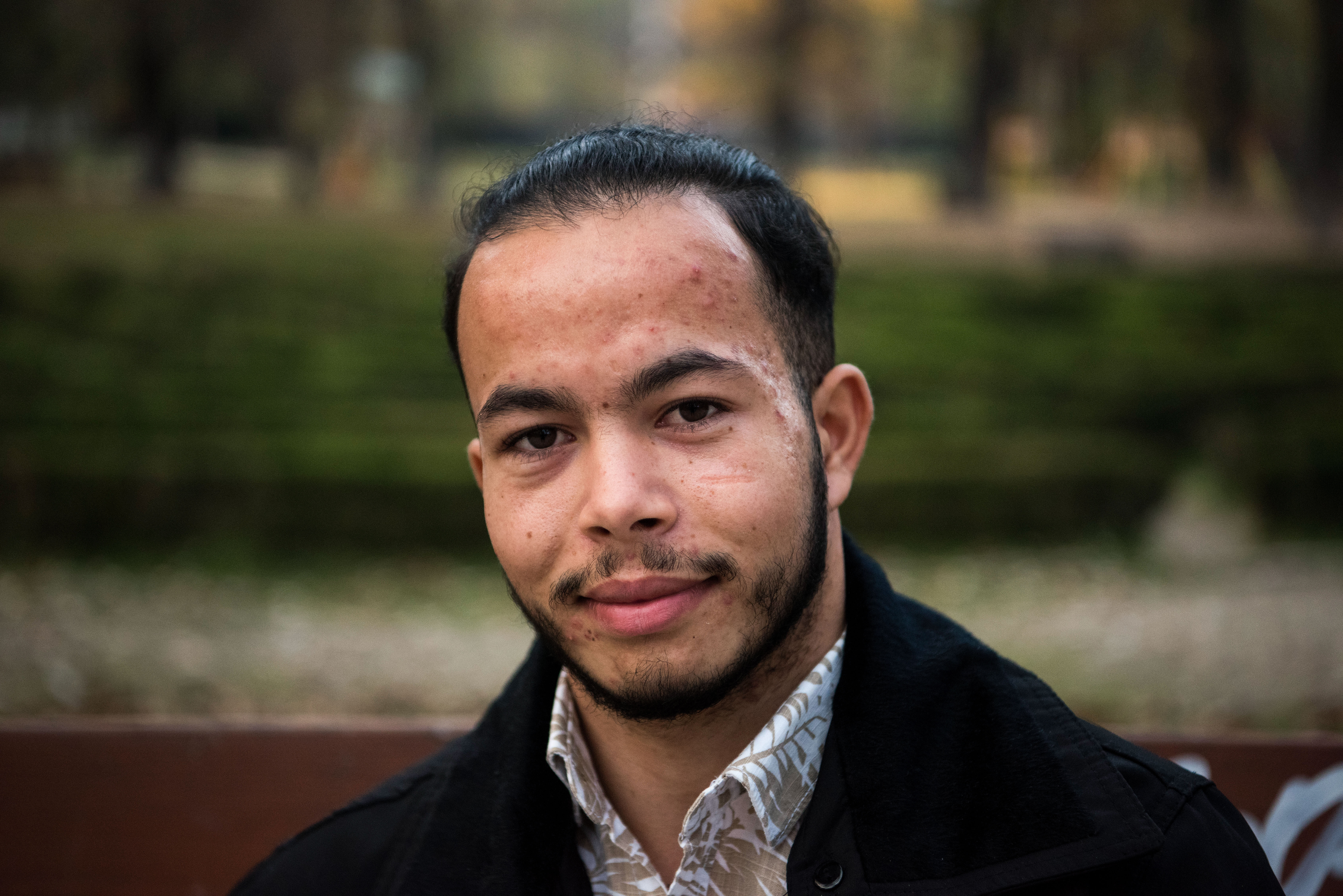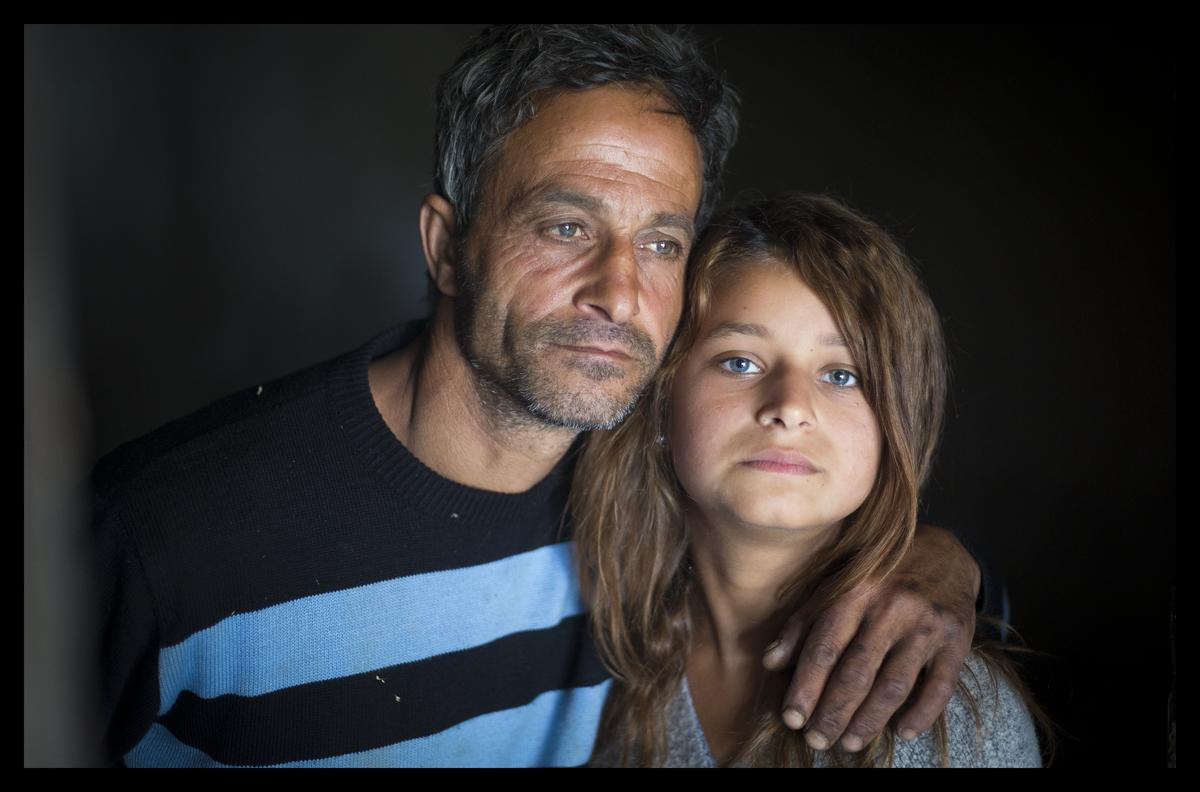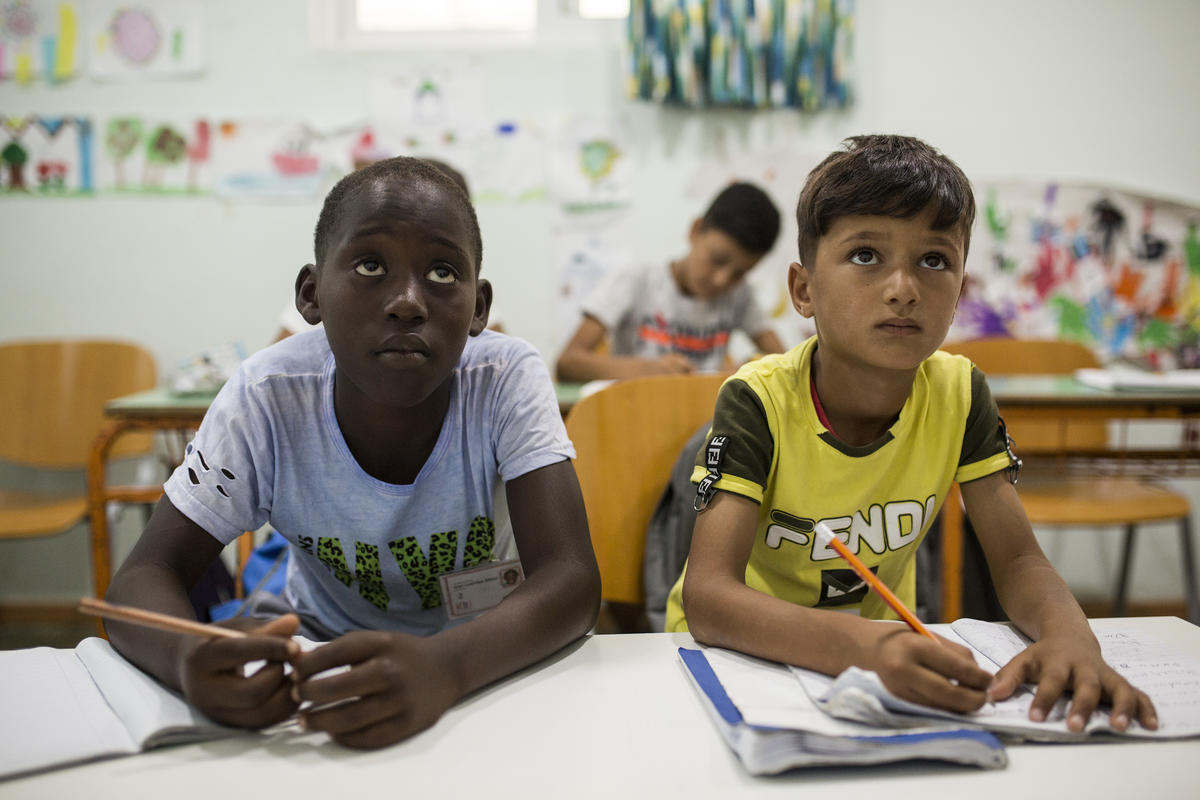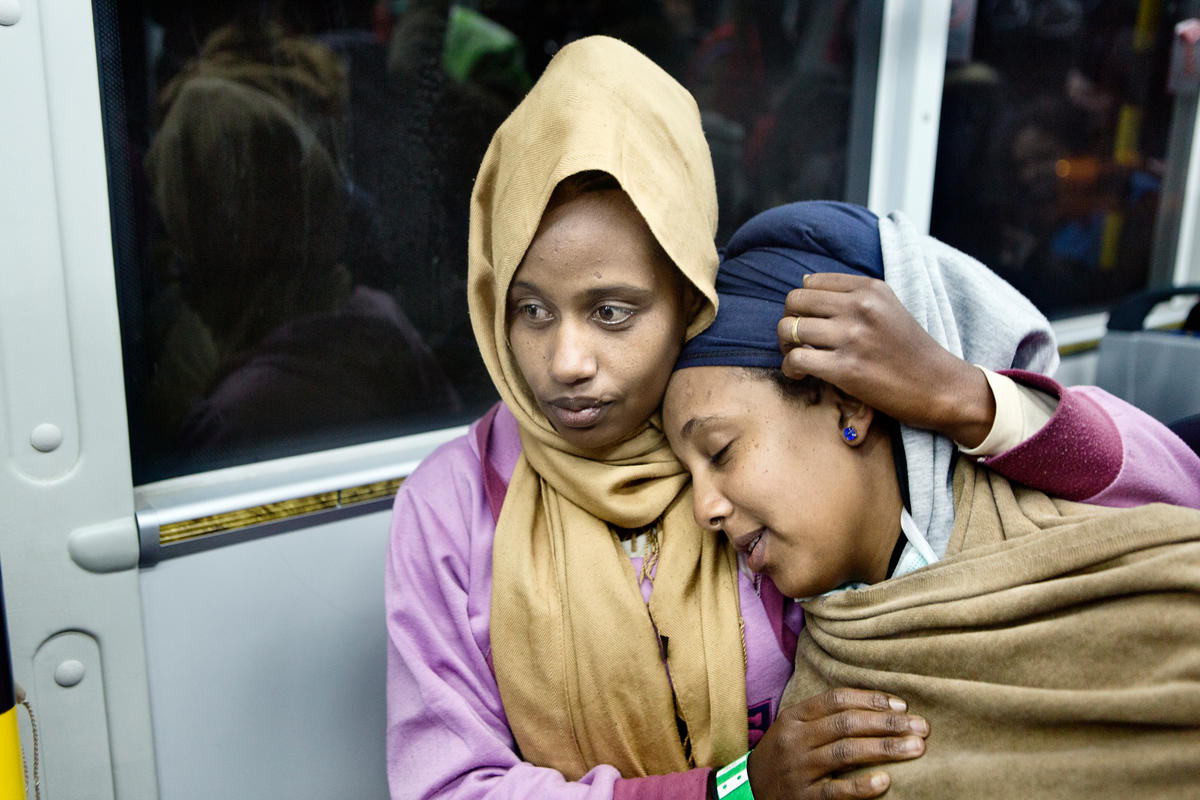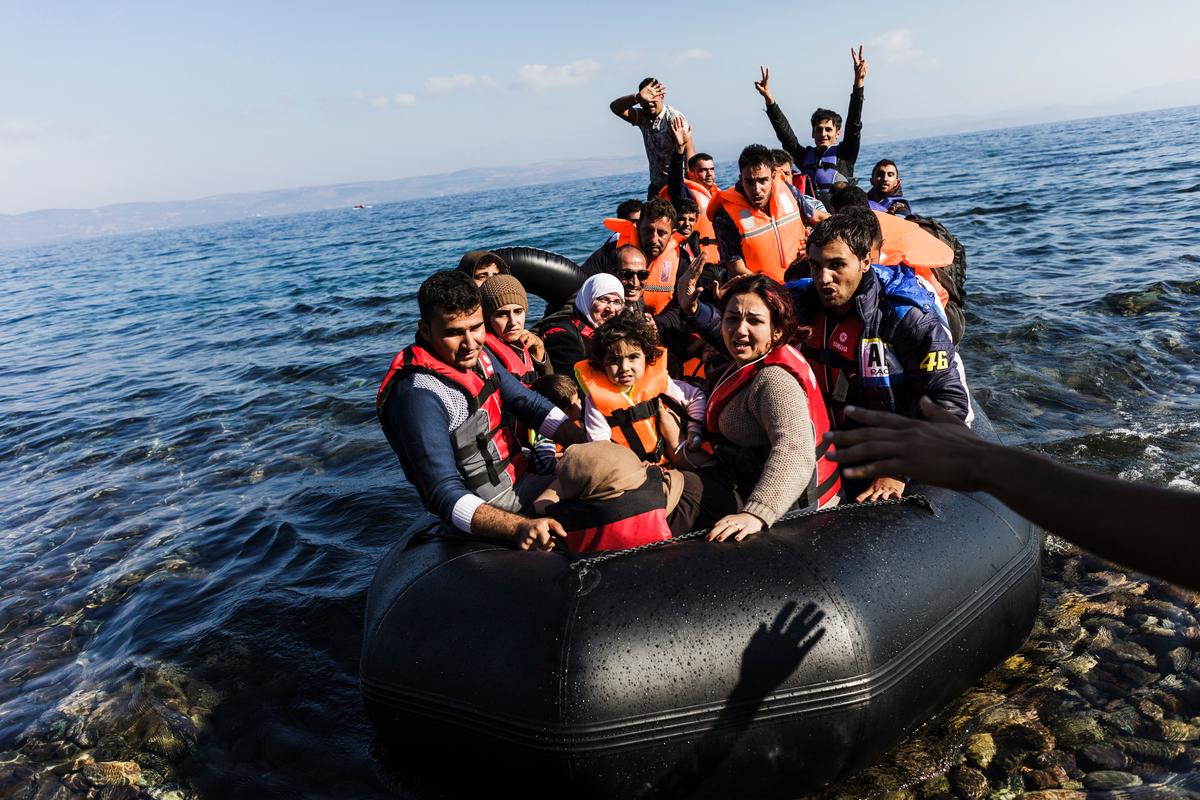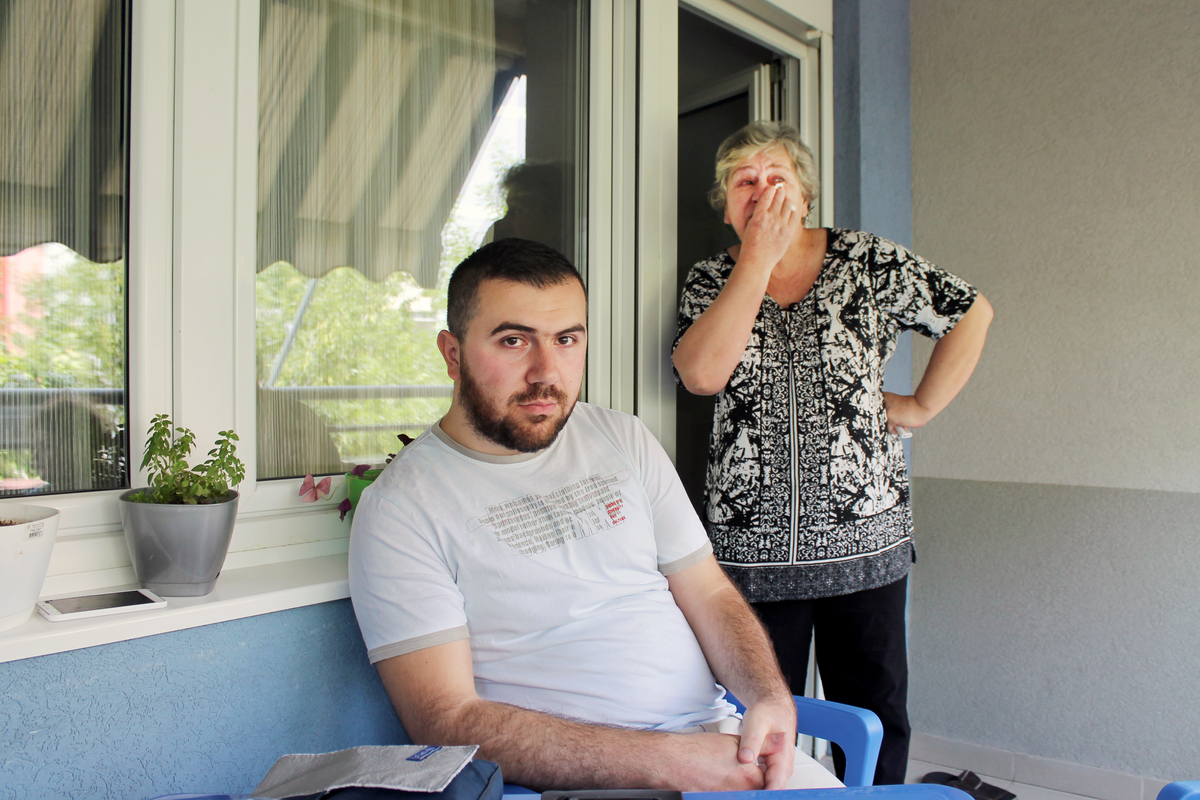F.Y.R. of Macedonia: shelter assistance programme successfully completed
F.Y.R. of Macedonia: shelter assistance programme successfully completed
As the security situation continues to improve in the former Yugoslav Republic of Macedonia (FYROM), UNHCR yesterday (Thursday) ended a successful shelter assistance programme that has helped thousands of families rebuild their damaged homes over the past year. In all, UNHCR has helped coordinate and repair minor damage to 6,000 houses in FYROM since it was enlisted in the international campaign to build confidence in the peace process.
Yesterday's final distribution of UNHCR shelter packages was done in the town of Tanusevci, where a total of 150 kits were distributed. In August, security forces began allowing returns to Tanusevci, at the time the only village remaining closed to its uprooted residents since a peace agreement was hammered out 14 months ago. Since August, all but about 50 of the estimated 1,000 ethnic Albanian residents of the village have gone back to their original homes. Security forces earlier this month pulled out from a school they had used as barracks in the village and an operation to clear the area of land mines and unexploded ordnance followed.
Fighting in FYROM first broke out in the Tanusevci area - in the Crna Gora mountains along the border with the Serbian province of Kosovo - in February 2001 when ethnic Albanians took up arms against the government charging they did not enjoy full rights. While ethnic Albanians in other villages steadily returned to their homes after a peace agreement was signed six months later, returns to Tanusevci were more complicated because security forces regarded the area as militarily sensitive.
Overall, around 95 percent of the 180,000 people uprooted by the conflict have gone back to their villages throughout FYROM. The remaining 8,000 internally displaced and 3,000 refugees - primarily in Kosovo - are expected to go home in the coming months once housing and security issues are addressed. The return of displaced Macedonians and ethnic Serbs, particularly in villages where they are in the minority, however, has been slower and in some cases more complex.
UNHCR's shelter assistance includes provision of timber, door and window frames, lime, bricks, tiles and electrical fuse boxes and switches. Last month, we handed over to the European Union and the International Management Group coordination for the repair of around 1,500 heavily damage houses - a challenging process that requires extensive surveys and coordination with government agencies.
UNHCR's other confidence-building programmes in FYROM include bus services to assure freedom of movement in the former conflict zones and quick impact projects (QIPs) particularly targetting mixed communities. With improved security, UNHCR is phasing out its bus services. Bus lines, which have been appreciated by all communities, are now down to eight from 13. The plan is to close down another two lines in the next few weeks as the situation continues to normalize. UNHCR has either completed or is about to wind up 130 QIP programmes, including repair of schools and clinics, water facilities and community buildings.

